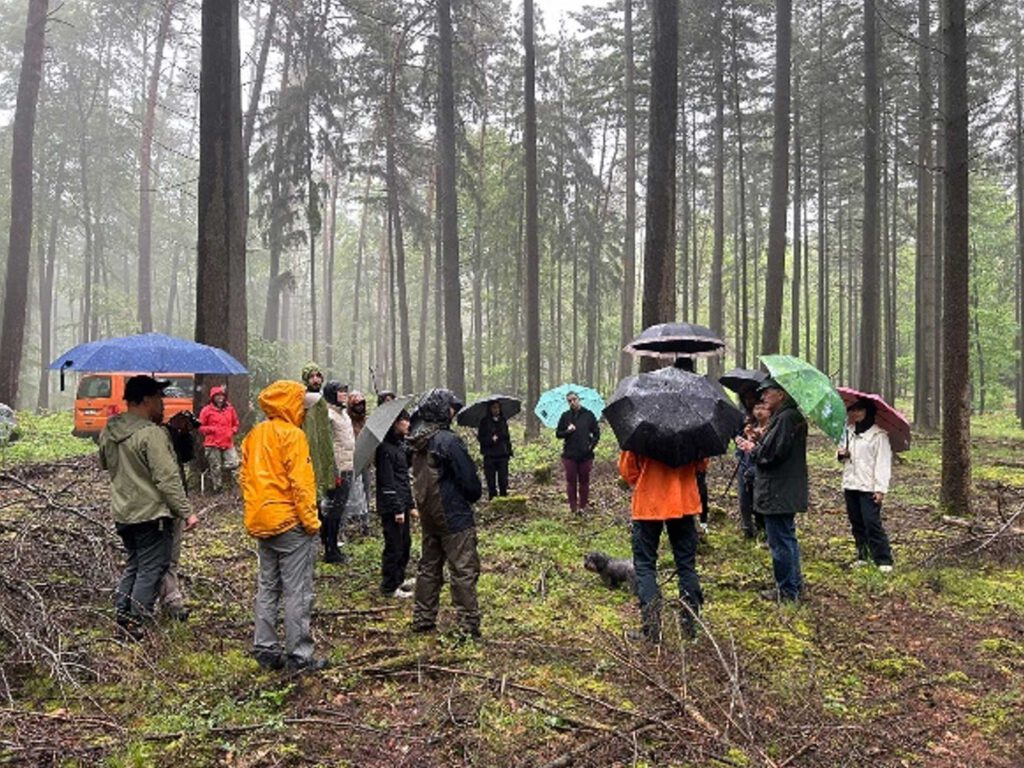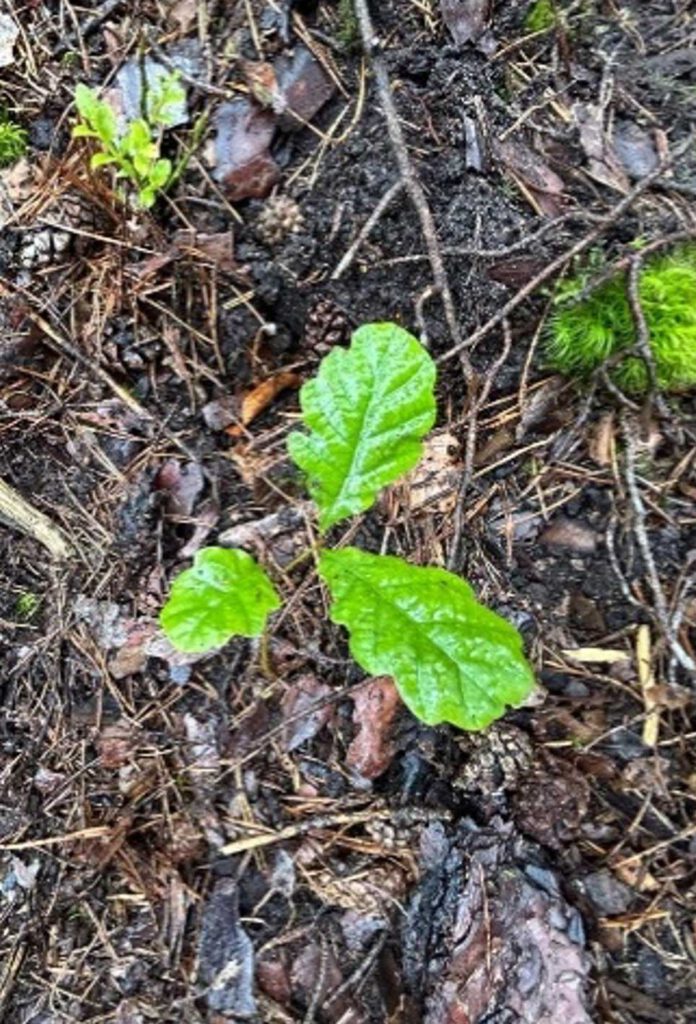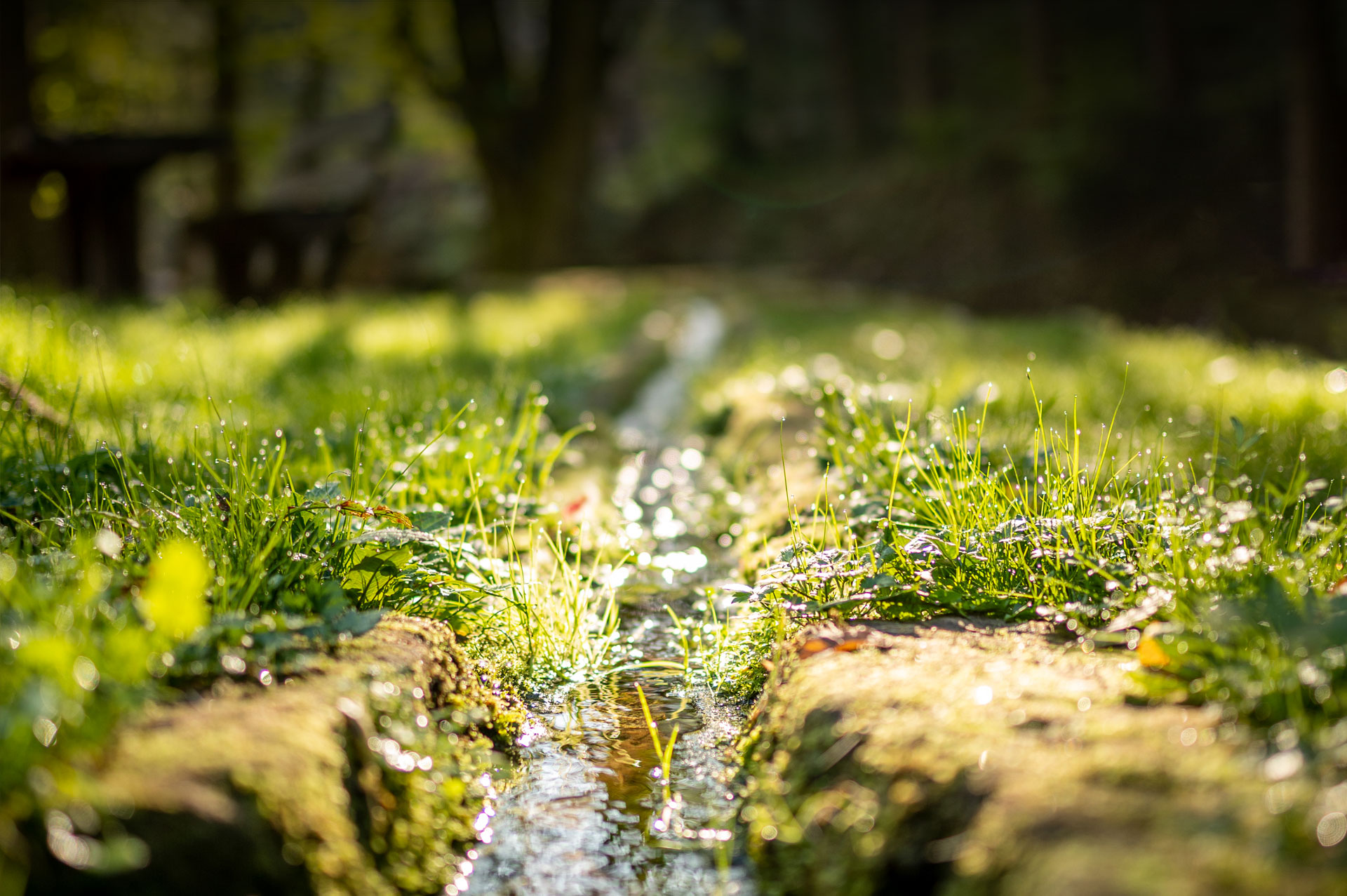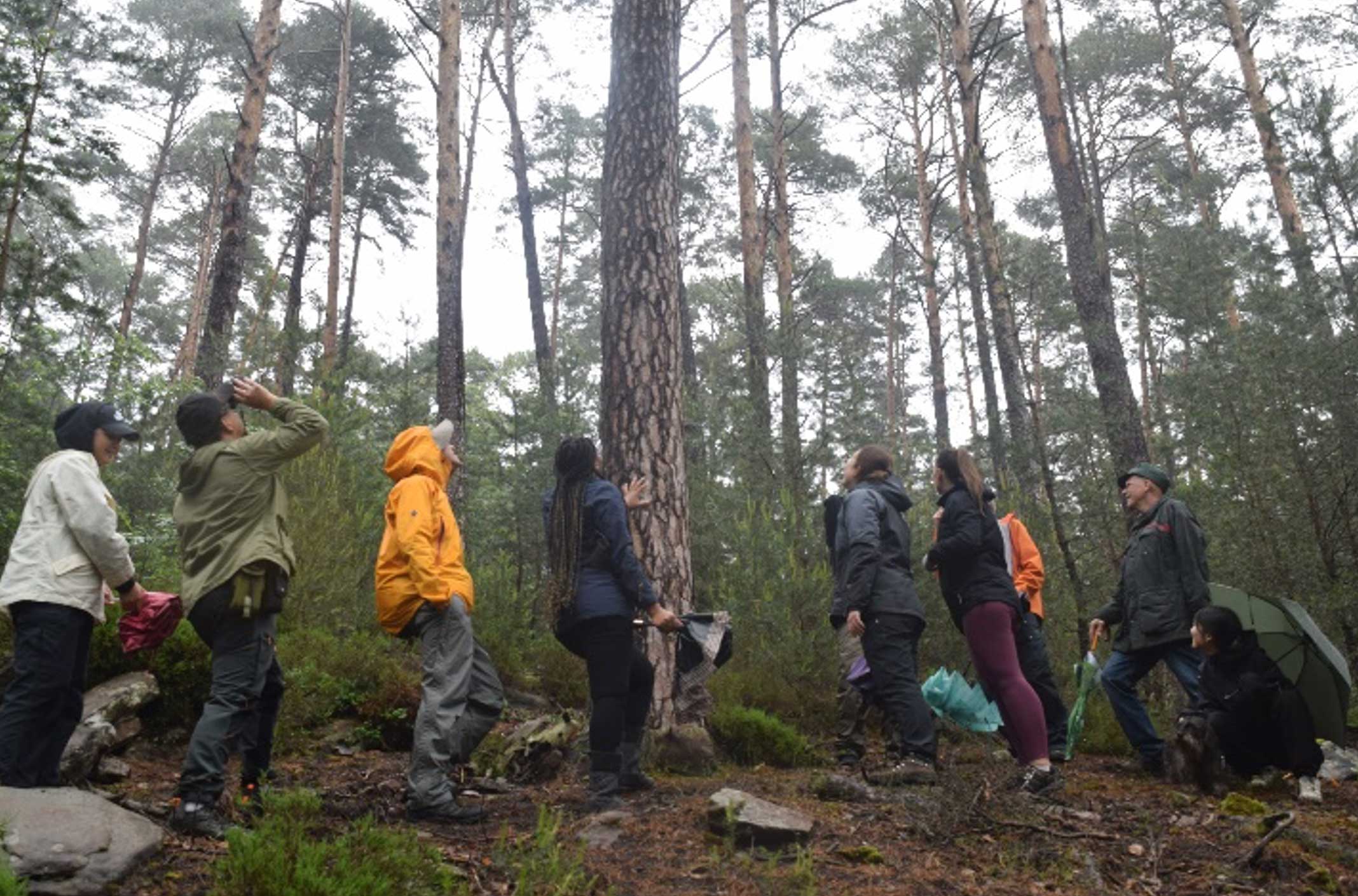Field Course in the Sattelmühle Forest, May 2024
On May 17th, my classmates and I from the European Forestry Master Program visited the Sattelmühle Foundation and its forest in Lambrecht, Germany. Our group, composed of students from 15 different nationalities, just finished the first year in Finland and is currently on a Field Course across Europe, visiting the countries associated with the Program.
In Germany, after exploring the Black Forest and the Rhine Valley, we visited the Palatine Forest. Mr. Burkhard Steckel welcomed us and provided an insightful introduction to the enterprise lands, emphasizing their history and current management practices.

Our first stop was at a site characterized by poor-quality soil, which historically had been used for litter racking. This practice involved removing the forest floor litter, which can degrade soil quality over time. The site featured a forest with two distinct strata: an overstory approximately 120+ years old and a younger stratum around 20 years old. Due to the poor soil conditions, the trees in this area grow slowly. Despite this, we observed significant natural regeneration of Pinus sylvestris and young oaks, a positive sign of ecosystem health. These species‘ presence indicates animal activity, including squirrels and European jay birds, which help with seed dispersal. During this visit, we discussed various management strategies suited to the site’s conditions and the wood quality produced.
At our second stop, we examined a site with planted Douglas fir, illustrating the species‘ growth potential in more favorable conditions. These trees, approximately 50 years old could grow for another 30 years before reaching optimal harvesting size. Some trees had already been harvested, a practice that opens the canopy and provides more space and resources for the remaining trees to grow. We discussed the management practices necessary to maximize the economic and ecological benefits of Douglas fir plantations, including thinning regimes and market considerations. The potential for these trees to reach 100 years old was also a key topic of discussion.

Overall, the visit provided an excellent opportunity to gain practical insights into the dynamics of site and tree development, along with the appropriate management methods to implement and the intricate balance between ecological health and economic viability.
By Letícia Mantovani Stein – Brazil


